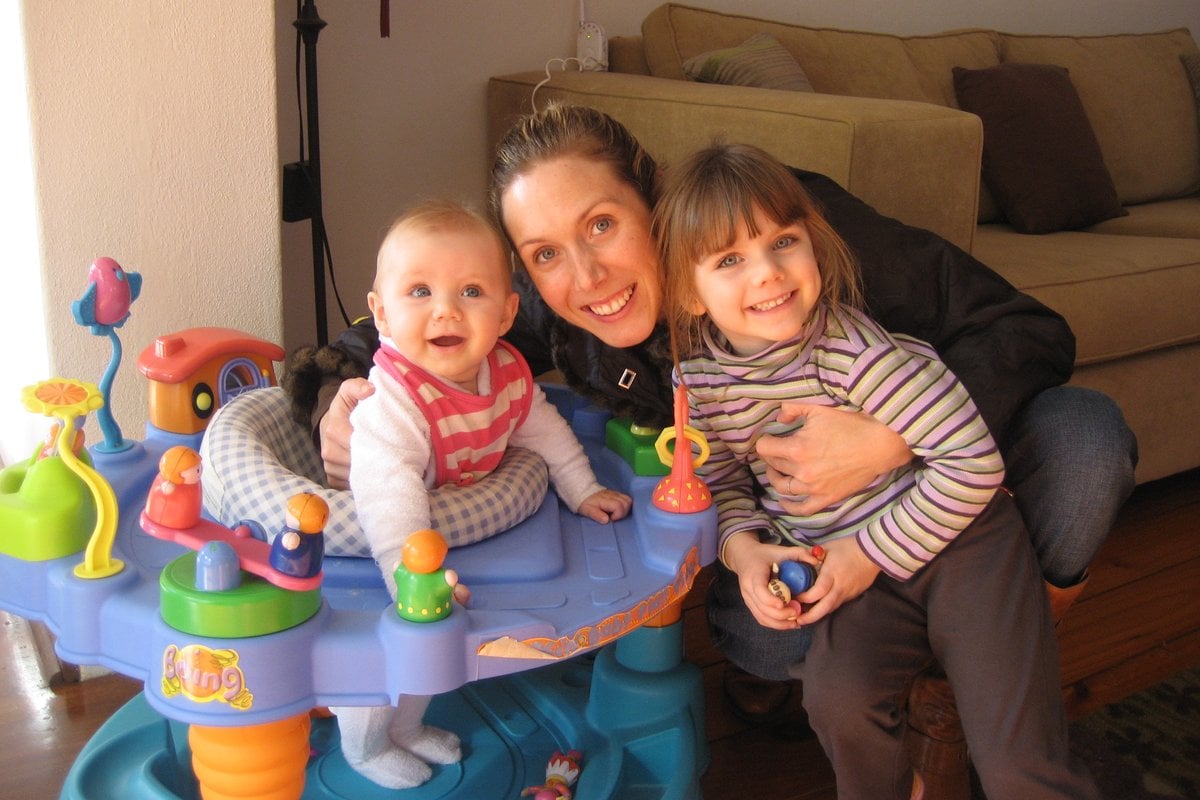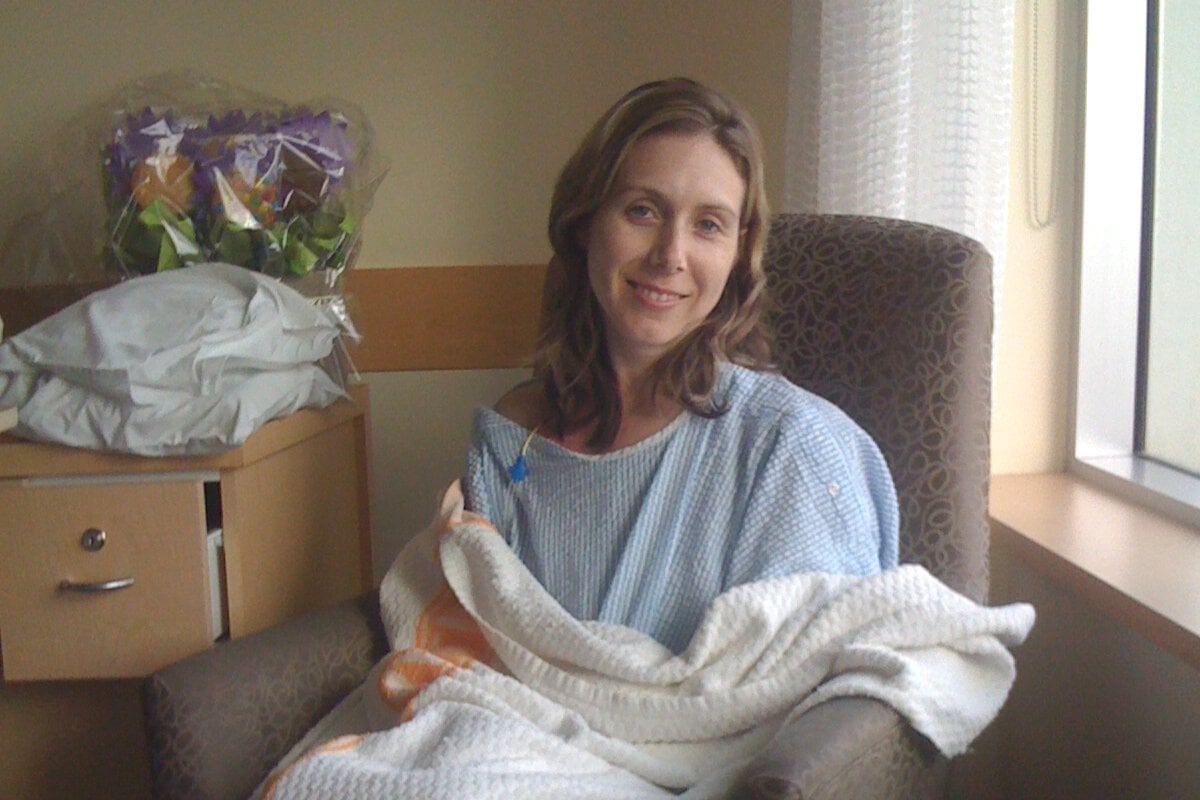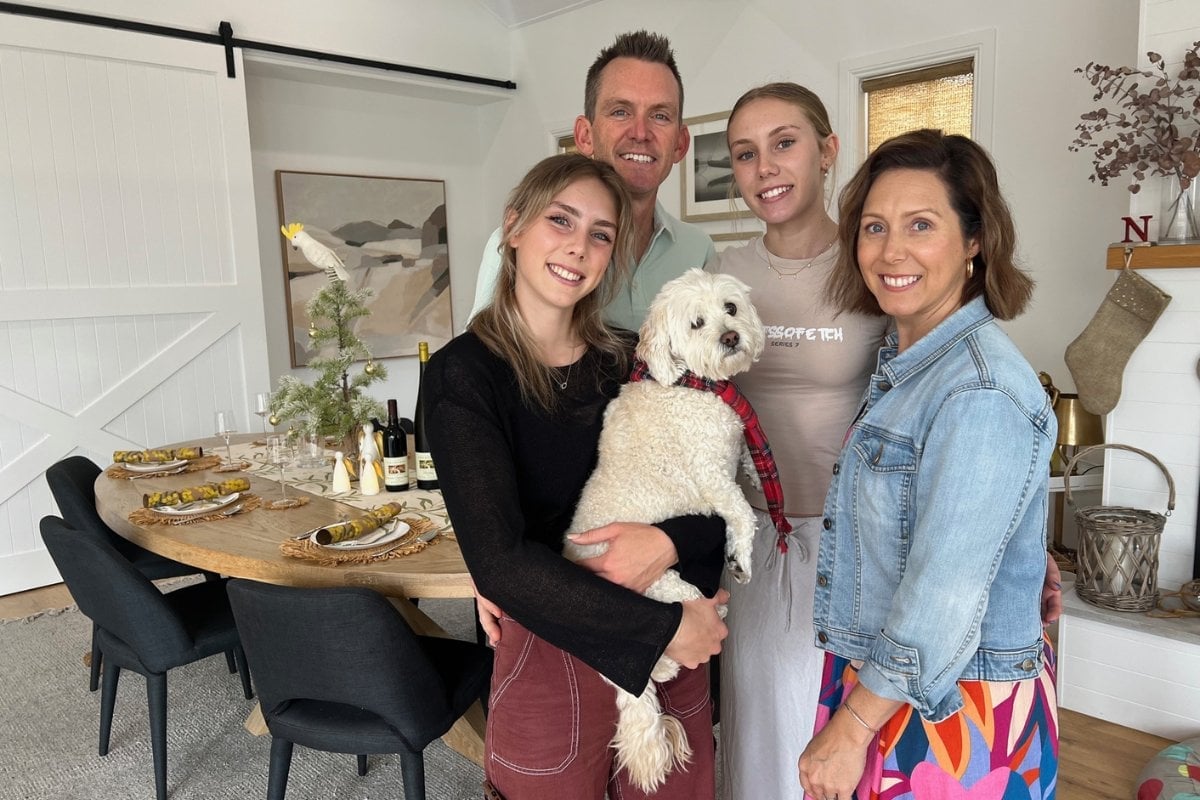
For many women who are pregnant for the first time, it's not uncommon to notice unusual bodily changes.
Adelaide mother Jamie experienced an uneasy stomach, gut issues and diarrhoea whilst carrying her two children. But there was something far more sinister bubbling under the surface of these seemingly common symptoms.
"I just put so much of the symptoms down to pregnancy, post-birth and tiredness. Your body changes when you've had a newborn, I just figured my body was readjusting," she tells Mamamia. "A lot of doctors figured the same."
Watch: Patients share their stories. Post continues below.
At the time, Jamie had been living in Los Angeles and going back and forth to doctors, feeling concerned about her gastrointestinal issues. Desperate for answers, she eventually visited her childhood GP back home in Adelaide in 2010.
"The symptoms kept persisting even after I had given birth to my second child. We figured it was an irritable bowel, so I went through the whole 'Let's cut out dairy', 'Now let's try gluten-free'. But the gut issues and the dry hot flashes were still there," says Jamie.



